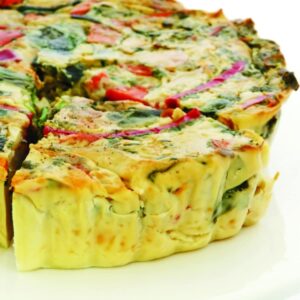
Whilst ‘superfoods’ are a clever construct of marketing, there are foods that include more variety of nutrients than others which you may consider to be ‘super’. And eating these nutritious foods as part of a balanced diet will help to supercharge your diet – and it needn’t break the bank. Here are five of the most affordable everyday super foods.
The real super foods
Whole foods, with a high concentration of nutrients, are the real super foods. Since they’re purchased and consumed as close to their natural state as possible, with minimal processing, they’re rich in beneficial compounds known as antioxidants. These protect against the harmful effects of free radicals, which damage human DNA and cells, and contribute to the ageing process. Free-radical damage is also linked to heart disease and cancer. But all foods offer a varying degree of different nutrients, so focusing only on one food’s antioxidant level overshadows this. As nutrition and exercise scientist Kathleen Alleaume says, “We eat food, not nutrients. Gone are the days when we demonise nutrients like fat or carbs. If you choose to eat wholesome foods in your eating pattern, then the nutrients will look after themselves.” So, while the occasional kale salad may provide you with a range of antioxidants, it’s not going to provide everything you need for optimal health.
Supercharge your diet
Becoming too fixated on just one antioxidant or just one nutrient in a food can make you lose sight of a really important point: nutrients in a combination of foods work together to benefit your health. Known as food synergy, this is a simple way to approach healthy eating: consume a variety of foods each day for optimal health, instead of only the ‘food of the moment’. With the rising cost of groceries, here are five low-cost foods that pack a real nutritional punch:
1. Sardines
Omega-3 fats from oily fish are important for good health, but buying fish fresh can be expensive. Canned sardines are a low-cost, oily fish option, and are also an excellent source of heart-smart fats. A 110g can of sardines provides roughly 2500mg of omega-3 fats, depending on the brand. That’s five times the recommended daily amount (500mg) of omega-3 fats in one humble can!

2. Linseeds
Chia seeds are having their moment, but linseeds (or flaxseeds) have a similar nutritional profile and are much more affordable. Linseeds are a good source of plant-based omega-3 fats, magnesium, potassium and fibre, but it’s best to grind them in a blender (or use a pestle and mortar) so they don’t pass through your body undigested. LSA mix is a healthy blend of ground linseeds, sunflower seeds and almonds that you can add to smoothies and baking, or stir through breakfast oats or muesli.

3. Oats
Old-fashioned whole oats are a low-cost, high-fibre, low-glycaemic index carbohydrate that provide magnesium, non-haem iron (or plant-based sources of iron) and dietary fibre. Hunger-busting oats contain a fibre known as beta-glucan, which can help reduce cholesterol levels in conjunction with a heart-healthy diet and are a perfect start to your day.
4. Red kidney beans
The humble red kidney bean has one of the highest antioxidant contents available from food. It’s also high in a fibre called resistant starch, which helps the growth of good gut bacteria. These beans provide protein, slow-digesting carbohydrates and a good range of vitamins and minerals. Buy them dried or as no-added-salt canned varieties, then add to spag bol or burritos and tacos. 
5. Eggs
We love the oh-so-versatile egg! Some people are still confused as to whether eggs are healthy or not. Well, they are! Eggs are nutrient-rich and contain 13 essential vitamins and minerals, including selenium and vitamin D. They also provide a small but useful amount of omega-3 fatty acids and are a good source of protein. Not to mention the fact they can be enjoyed at any time of day! Eggs do contain cholesterol, but it’s now known that cholesterol in your diet does not have a big influence on blood cholesterol.
The latest Heart Foundation recommendations put no limit on how many eggs healthy people can eat each week. If you have a history of heart disease or high cholesterol, however, the recommendation is to limit eggs to seven a week.
www.healthyfood.com










